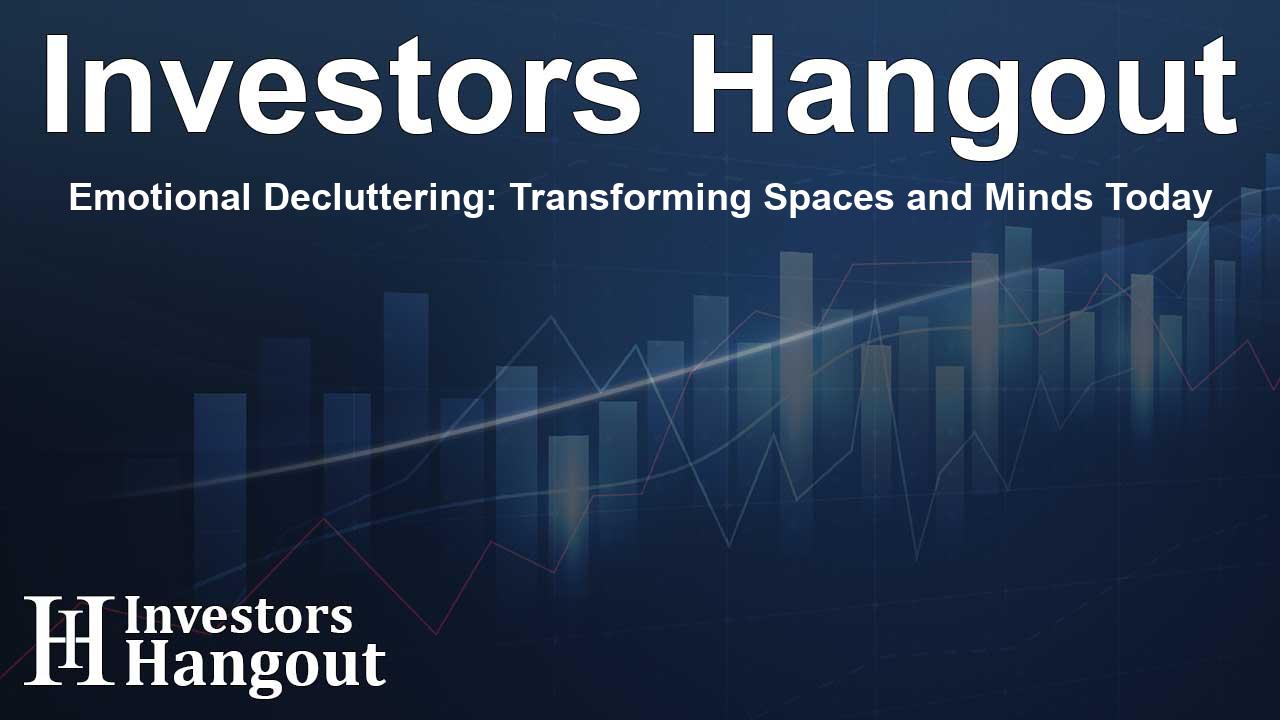Emotional Decluttering: Transforming Spaces and Minds Today

Understanding the Emotional Impact of Clutter
Clutter has become a pervasive issue for many, often extending beyond mere physical items and diving deep into emotional turmoil. The significant challenges associated with clutter reveal the profound emotional struggles many individuals face in their daily lives. Decluttering is not only about eliminating excess items but is fundamentally intertwined with self-awareness and emotional health.
Common Misunderstandings in U.S. Decluttering Approaches
Household chaos doesn't have to control your life. Many people, especially in America, harbor misconceptions about decluttering that perpetuate the problem rather than solve it. Here are some common myths and the truths behind them:
Believing More Space is the Solution
One frequent belief is that acquiring larger spaces will resolve clutter issues. However, this notion is misguided. More room can simply mean more places to hide away items, often leading to increased stress rather than relief. The reality is that clutter stems from a mindset that needs addressing first. Recognizing why items are kept is crucial for real change.
Symptom Management vs. Root Cause Resolution
Many fall into the trap of just organizing their belongings without tackling the emotions tied to them. While it may be tempting to purchase storage solutions or set up aesthetic arrangements, these methods merely cover up the underlying issues. A more effective approach is to confront the emotions causing attachment to certain items and unpack those feelings.
The Allure of Great Deals
Retail promotions can entice individuals to buy things they don’t need. This can lead to accumulating items that soon become clutter. It’s essential to evaluate not just the price but whether the items genuinely add value to your life instead of just taking up space and lead to frustration later.
Transformative Strategies to Manage Clutter
Instead of adhering to harmful misconceptions, employing emotional decluttering strategies could be the key to a more organized and peaceful home.
Shifting Focus from Temporary Solutions to Lasting Change
True relief from clutter comes not from simply storing items in self-storage units but from understanding and addressing your relationship with those items. This approach promotes clarity and an environment filled with purpose.
Pacing Yourself for Sustainable Habits
People often feel overwhelmed when attempting to tackle their spaces in one major effort. Smaller, manageable tasks yield better results and a sense of achievement. Celebrating accomplishments, no matter how minor, can motivate continued progress toward decluttering.
Challenges American Homes Face
Clutter isn't merely a personal issue—it's a national concern. Statistics reveal that a significant percentage of adults feel overwhelmed by clutter:
- 54% of American adults report feeling overwhelmed by clutter.
- 26% with two-car garages are unable to park inside due to excess items.
- On average, households spend around $3,000 yearly to replace lost or duplicate items.
- Clutter is closely linked to increased cortisol levels, sleep disturbances, and emotional strain within the home.
Breaking Through Emotional Barriers
Understanding and engaging with emotions directly related to clutter can facilitate significant breakthroughs. Instead of seeing feelings as burdens, embracing them as part of the decluttering process can lead to meaningful and lasting change.
Building a Supportive Home Environment
Decluttering isn’t simply about discarding items; it’s about creating a living space that reflects your values and supports your well-being. Establishing a harmonious environment necessitates respectful acknowledgment of the narratives associated with your belongings, which ultimately influences the choices you make regarding them.
Frequently Asked Questions
What is emotional decluttering?
Emotional decluttering focuses on understanding the feelings tied to possessions and addressing those emotions instead of merely organizing items.
Why is decluttering considered essential?
Decluttering helps individuals create physical and mental space, leading to reduced stress and improved quality of life.
Can decluttering influence mental health?
Yes, managing clutter effectively can alleviate anxiety, promote better sleep, and enhance overall emotional well-being.
Is it necessary to declutter all at once?
No, it's often more effective to declutter in small, manageable increments rather than attempting a massive overhaul in one go.
How can I start my decluttering journey?
Begin by identifying small areas to tackle, understanding the emotions linked to items, and setting realistic goals for decluttering.
About The Author
Contact Hannah Lewis privately here. Or send an email with ATTN: Hannah Lewis as the subject to contact@investorshangout.com.
About Investors Hangout
Investors Hangout is a leading online stock forum for financial discussion and learning, offering a wide range of free tools and resources. It draws in traders of all levels, who exchange market knowledge, investigate trading tactics, and keep an eye on industry developments in real time. Featuring financial articles, stock message boards, quotes, charts, company profiles, and live news updates. Through cooperative learning and a wealth of informational resources, it helps users from novices creating their first portfolios to experts honing their techniques. Join Investors Hangout today: https://investorshangout.com/
The content of this article is based on factual, publicly available information and does not represent legal, financial, or investment advice. Investors Hangout does not offer financial advice, and the author is not a licensed financial advisor. Consult a qualified advisor before making any financial or investment decisions based on this article. This article should not be considered advice to purchase, sell, or hold any securities or other investments. If any of the material provided here is inaccurate, please contact us for corrections.
